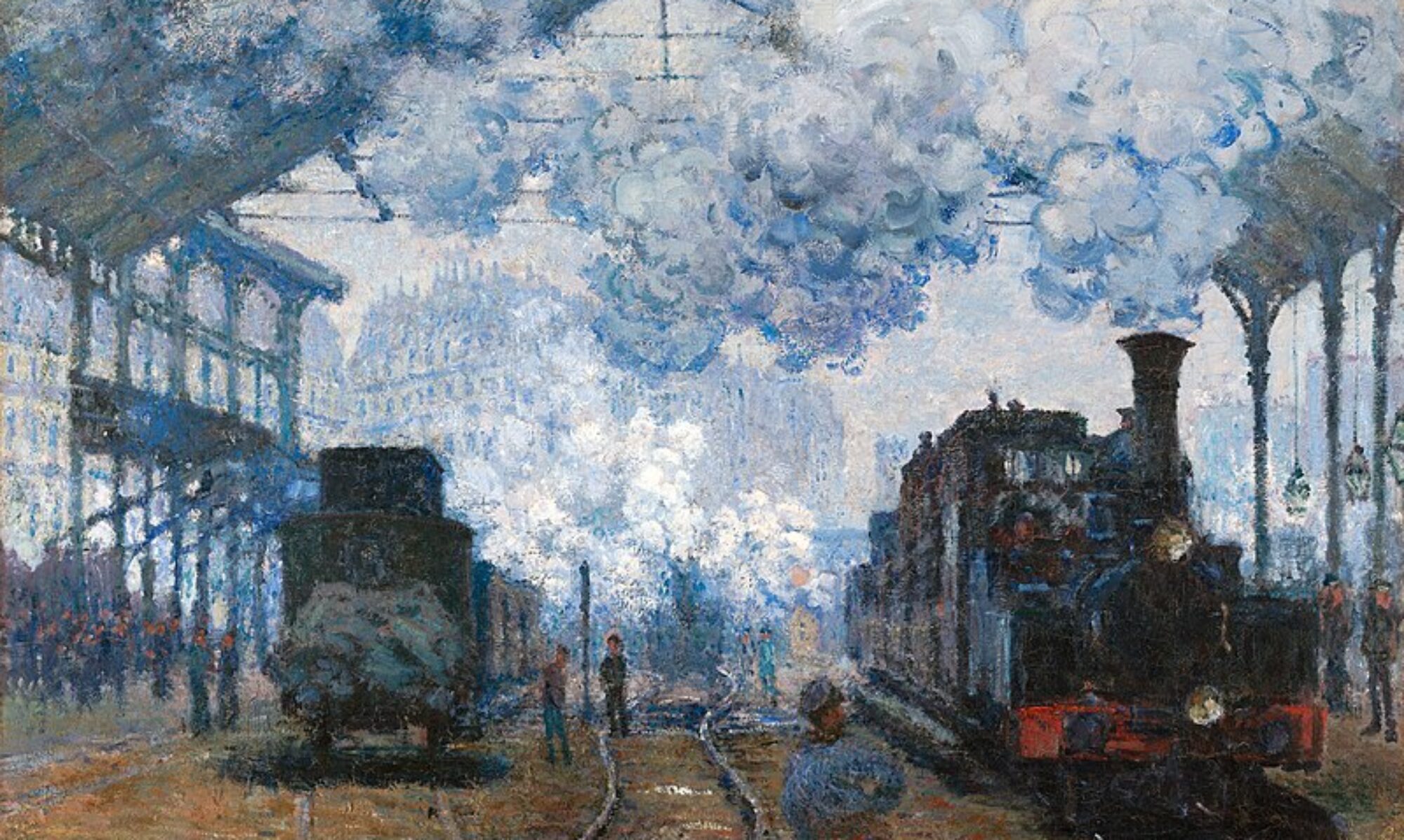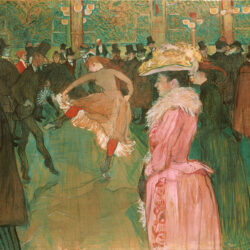In “All things fall apart” Both the clan and the Christians try to justify their own religious beliefs, the Christians wanted land to build a church that could help bring in more people, and In order for the village leaders to prove they were right they wanted to denounce the Christians beliefs. In chapter 17, it says, “They did not really want them in their clan, and so they made them that offer which nobody in his right senses would accept” (Pg.148). By giving them land on the “evil” forest they wanted to make sure the Christians were set to fail, but they did not. Do you think that the Christians succeeding in the forest could be a sole cause for why many villagers join after?
Christianity in Africa
Chapter 16 of Things Fall Apart explains the involvement of the Christian missionaries in the village. They say that they are there to teach them about the real God, and that the gods that they worship are false gods. “And he told them about this new God, the Creator of all the world and all the men and women” (145). The missionary then says that in order to be saved, they must turn to the real God in order to be saved. “We have been sent by this great God to ask you to leave your wicked ways and false gods and turn to Him so that you may be saved when you die” (145). Christians have been involved in Africa for a while, and their involvement can be seen as both good and bad, depending on the viewpoint. If the intent of the missionaries is to save the villagers, then their involvement can be seen as for good, but it can also be seen as imperialistic. In more recent years, Christians have combined their beliefs with charity work in the form of mission trips, but even that has controversy surrounding it. Many Christian organizations have donated to African villages with the intent to do good, but by flooding the market with their donations (for example, shoes), they are hurting private businesses in the village that make shoes for a living, and in extreme cases, even putting them out of business. While some of their early charity work does unfortunately end up hurting village economies, many organizations have adapted their strategies in order to help develop the economies, instead of accidentally making them dependent on handouts. By doing good work for African villages in more recent years, have Christians made up for their past mistakes in Africa, or should they never have been involved in the first place?
Relationship Between Father and Son
In chapter 16 we read that the relationship between Okonkwo and Nwoye is very strained to the point where Nwoye says that he is not his father. When the Christians come Nwoye is somehow drawn to them and wanted to learn more. In chapter 17 we read that Nwoye joins the Christians and wants to come back later and convert his family. Why do you think Nwoye was drawn to the Christian faith so much so that he left his family?
Breaking Apart
Chapters 16 and 17 are very important chapters in this novel as we see the effects of the imperialists on Africa. Earlier parts of the novel focused on family relations and kinship, but not long after white men enter the villages we see signs of inner weakness among these units. Okonkwo and his oldest son’s relationship becomes even more strained as his son accepts the Christian faith. We also see the first woman convert (a pregnant woman) turning from her family after being forced to abandon past children because of traditions. Why do you believe Christianity appealed to certain people within the village?
“Ominous” Foreshadowing
In chapter 15 of “When Things Fall Apart,” Okonkwo’s friend Obierika had delivered news to him and his uncle about the massacre of the African Abame tribe that had occurred at a large market place. This massacre had destroyed the entire tribe and only a few members were left. This massacre was different from the normal disputes or wars between tribes because this tragedy was committed by three white European colonizers who had received help from members of another tribe. (Achebe, 131)The white men had sought revenge after members of the Adame tribe had noticed a white man riding on his horse, and they had killed him after receiving a warning from their oracle about the destruction that white men would bring. Thus, the Adame were defending themselves from what they perceived to be the beginning of invasion. After all, many individuals from tribes have heard stories about white men kidnapping Africans by force and enslaving them. (Achebe, 132)Thus, they were concerned about the safety of their tribe. However, the Adame never asked the white man for information which Oknokwo’s uncle Uchendu believes led to the slaughter. (Achebe, 130) For instance, Uchendu stated, “Never kill a man who says nothing. Those men of Abame are fools. What did they know about the man?” Unchedu believed that it was dangerous to kill a man without finding out his intentions first or the reactions of those who accompany a man. (Achebe, 131) Uchendu then narrated a story about a woman who told her daughter to return a baby chick she had stolen from its mother because the mother had walked away in silence. The woman believed that the chick could not be eaten until the mother had at least shouted or cursed her daughter for stealing the chick because she believed that silence left uncertainty. The woman feared that the duck could seek revenge for her baby chick, so they needed to see her express normal emotions such as anger. For instance, she states, ” “Their is something ominous behind this silence.” (Achebe, 132) How does Uchendu’s story about the baby chick foreshadow the uncertainty and dangers surrounding European imperialism?
superstition 10/27
in chapter two the narrator adds in the addition of how much superstition was apart of their culture “darkness held a vague terror these people, even the bravest among them. Children were warned not to whistle at night for fear of evil spirits. Dangerous animals became even more sinister and uncanny in the dar. A snake was never called by its name at night, because it would hear.” these superstition can seen evolving over time and i wonder if they can be connected to thing like religon and other spirtatul elements? another thing is that these people are not the only ones that fear the dark, however this fear and the creation of superstition has keep human alive a lot longer because of it. what I am asking is if supertition is not all nonsense but like the fear of speaking the word snake in the night was humans complex way of expressing instinct?
Neighbors
In Chapter 15 of “Things Fall Apart”, one quote stuck out to me in particular. “I knew your father, Iweka. He was a great man. He had many friends here and came to see them quite often. Those were good days when a man had friends in distant clans. Your generation does not know that. You stay at home, afraid of your next-door neighbor. Even a man’s motherland is strange to him nowadays” (Achebe 137). I find this very interesting. Nowadays, it does seem that people do not communicate with their neighbors as often =, or explore the areas around them. Do you find this to be true? And if so, why do you think this?
Masculinity and Violence-10/27
In Chapter 2 of Things Fall Apart, it says, ” His [Okonkwo] wives, especially the youngest, lived in perpetual fear of his fiery temper, and so did his little children. Perhaps down in his heart Okonkwo was not a cruel man. But his whole life was dominated by fear, the fear of failure and of weakness… It was not external but lay deep within himself.” (pg. 12-13)
This quote describes Okonkwo’s behavior with his family, and why he acts the way he does. He lashes out at people because of his insecurities and fears of inadequacy. While this does not excuse abusive behavior in any way, the explanation is important to understand. Where does his issues stem from? His father, the society he lives in, or maybe both? How is this exacerbated by his exile and move to his mother’s village in Chapters 14 and 15?
Judgement of others
In chapter one of Things Fall apart, we learn about Okonkwo’s father, Unoka. Unoka is described in this chapter as a man that people didn’t have much respect for. He was said to be lazy, improvident, and was in extreme amounts of debt due to him borrowing money from neighbors and never returning the money he owed. He never took any titles. (Mandela 4)
Because of how his father acted, Okonkwo was ashamed of his father. “Fortunately, among these people a man was judged according to his worth and not according to the worth of his father (Mandela 8).” This shows us that back in the 19th century, some dealt with this issue of people judging them based on things their parents have or haven’t done. Do you think we still see this issue occurring in today’s society? How can this be harmful to a person’s reputation in the time period of the book or even in today’s society?
What you pass down (and what you don’t).
The exploration of the relationships between parents and children seems to play a central role in Chinua Achebe’s Things Fall Apart. Okonkwo lost his mother at a young age and he grew up regarding his father as a failure, both as a man and therefore in life. He looked to his father, Unoka, as an example of how not to behave and this clearly influences how he interacts with his children and partners; “Okonkwo ruled his household with a heavy hand. His wives… lived in perpetual fear of his fiery temper, and so did his little children” (4). His oldest son, Nwoye, however is already displaying attributes that Okonkwo associates with his father and therefore abhors especially an “incipient laziness” (4). I would argue from this small portion of the book that the author is setting up a cycle where a parent (Unoka) behaves a way that drives their child (Okonkwo) to “hate everything that his father… had loved” (4) and therefore act the opposite way when they are grown, however that extreme behavior alienates their child (Nwoye) who might grow up to live to try and be the opposite of his father. Do you see the author making this point? How do you factor in the role of the mother in this, does it change the dynamic? As Uchendu comments “when a father beats his child, it seeks sympathy in it’s mother’s hut” (44) does the presence of a mother or another parent have an effect on this pattern? I think it is important to consider since one difference between the generations is that Okonkwo lost his mother as a boy but Nwoye still has his.

